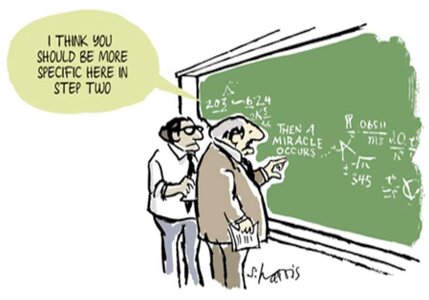I'm assuming they wall off the area of the brain that holds more profound, personal memories.
Digression alert, but I think you'll like it...
This is an area I have had life-long interest in--meaning how the brain works with consciousness and memory, and I have some ideas about what they are getting at with the severance procedure and ideas. The director and writer have worked with a top neuroscientist and surgeon, Vijay Agarwal, who oversees brain surgery on the advancing edge treatments for things like brain tumors. He has said that something like what is in this show is theoretically possible in the future, and an extension of certain specific things that are being done now.
I don't want to get too deep in the weeds in this for now, but for now the basic premise is that we know that there are connections that trace throughout the brain linking memory and emotion, including specific traces. I think I might have mentioned some of this above in the thread. We know that self-directed (actually!) attempts at remembering certain things can cause actually too much electrical stimulation down a neurological pathway, which results in a backfire effect--the very memory specific you want is temporarily not accessible at all. This is the notorious "tip of the tongue" phenomenon when we want to retrieve a name or something and perversely too much thinking about it blocks it, like all the traffic trying to take one freeway exit at once at rush hour.
The show is positing a science fiction conception that all connected pathways relating to memories of work life or non-work life have connections that could be traced and walled off by enforced specific electrical stimulation that the chip provides. The details here are the realm allowed in futuristic science fiction, but it's acceptable even though we don't have the how. In SF it is kind of like this joke:

So you kind of have to go with the idea that they can detect, via the chip and outside computing, the traces for outside life and also for work life and alternately block each. Now the show demostrates this is not complete and has "leakage." But the premise of two people in one head is to a certain limited degree, known science. Commissorotomy patients who have had brain hemispheres cut apart show signs of two people created out of one (Wikipedia):
After the right and left brain are separated, each hemisphere will have its own separate perception, concepts, and impulses to act. Having two "brains" in one body can create some interesting dilemmas. There was a case in which, when one split-brain patient would dress himself, sometimes he pulled his pants up with one hand (the side of his brain that wanted to get dressed) and down with the other (the side that did not). He was also reported to have grabbed his wife with his left hand and shook her violently, at which point his right hand came to her aid and grabbed the aggressive left hand (a phenomenon sometimes occurring, known as alien hand syndrome).
Alien hand syndrome is comically depicted in
Dr. Strangelove, with his embarrassing "Nazi arm" in the movie of that name. The degree to which brain commissurotomy truly creates two people in one brain is very controversial, but it certainly does it in some ways as shown above.
Severance is extending all of this in massive, astoundingly brilliant ways for science fiction.

